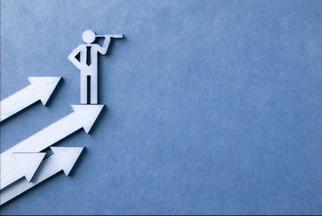Recognition is more than just a nice gesture—it's a fundamental human need that directly impacts our motivation, performance, and wellbeing. Understanding the psychology behind recognition can help organizations create more effective engagement strategies.
Recognition satisfies our basic need for belonging and validation, triggering powerful psychological responses that drive behavior change.
— Dr. Abraham Maslow, Hierarchy of Needs
The Science of Recognition
When we receive recognition, our brains release dopamine and oxytocin—neurotransmitters associated with pleasure, bonding, and motivation. This creates a powerful positive feedback loop:
1. Recognition Received
Brain releases dopamine and oxytocin
2. Positive Emotions
Feelings of pride, satisfaction, and connection
3. Increased Motivation
Desire to repeat behaviors that earned recognition
4. Improved Performance
Higher engagement and productivity
Types of Recognition and Their Impact
Not all recognition is created equal. Different types have varying psychological effects:
🎯 Achievement Recognition
Celebrating specific accomplishments and milestones
Impact: Builds confidence and encourages goal-setting🤝 Peer Recognition
Recognition from colleagues and team members
Impact: Strengthens relationships and team cohesion👑 Leadership Recognition
Recognition from managers and organizational leaders
Impact: Validates importance and career growth🌟 Public Recognition
Recognition shared with the broader organization
Impact: Creates role models and cultural normsThe Recognition Gap
Despite its importance, recognition remains one of the most underutilized tools in workplace engagement:
65%
of employees say they haven't received recognition in the past year
78%
would work harder if they felt better appreciated
40%
cite lack of recognition as a reason for leaving their job
Best Practices for Effective Recognition
To maximize the psychological impact of recognition, follow these evidence-based practices:
⚡ Be Timely
Recognition is most effective when given immediately after the behavior or achievement.
🎯 Be Specific
Instead of generic praise, highlight specific actions and their impact.
🤝 Be Sincere
Authentic recognition has much greater impact than formulaic praise.
📊 Be Consistent
Regular recognition creates a culture where appreciation is expected and valued.
How WAZO Optimizes Recognition Psychology
WAZO's platform is designed around psychological principles to maximize the impact of recognition:
Instant Recognition
Real-time feedback that captures the moment and maximizes dopamine release.
Multi-channel Recognition
Public and private recognition options to meet different psychological needs.
Recognition Analytics
Data-driven insights to ensure recognition is fair, frequent, and effective.
Measuring Recognition Impact
Organizations using WAZO's recognition features have seen significant improvements:
52%
Increase in employee satisfaction scores
38%
Reduction in voluntary turnover
45%
Improvement in team collaboration
Getting Started with Recognition
Ready to harness the power of recognition psychology in your organization?
- Assess your current recognition practices
- Identify opportunities for improvement
- Choose the right recognition platform
- Train leaders on effective recognition
- Measure and celebrate the impact
Transform Your Recognition Culture
Start leveraging the psychology of recognition to drive engagement and performance in your organization.
Learn More

